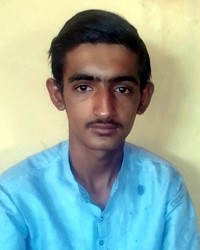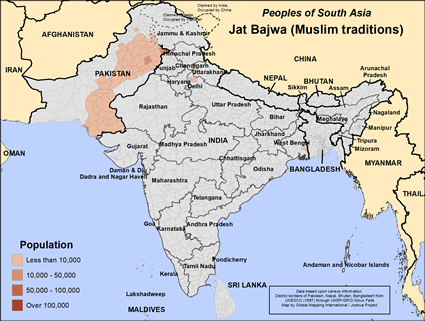The Bajwa Jats are known for being brave and for their longstanding involvement in agriculture. This clan is called the "clan of the hawk," a reference to two of their prominent ancestors, according to Wikipedia. However, much of what we hear about the Bajwas comes from legends, which may not be historically reliable.
We still know Jats for their pride, bravery and readiness to sacrifice their lives in battle for their people and kin. Many in today's Pakistan chose a career in the military, though they are more likely to be agricultural landowners. A small percentage are traders and laborers.
At the village level, Bajwa Jats appear to be democratic. They prefer elected village headmen and have little reverence for hereditary rights. They reserve leading positions for men.
Conservative by nature, the Bajwa Jats rarely marry people from other people groups. From about 1650 AD onwards marrying within same gotra (ie, lineage or community) became more common. The modern-day litmus test Jat people use in marriage is if the girl and boy must not have the same great-great-grandparents (not related for four generations). If they are from the same gotra but are not directly related for four generations then it is considered acceptable for them to marry. Widow marriage is a social obligation. Jat women have inferior status to men. They must marry young, and few get the chance for an education.
The joint family system was popular amongst the Jats and large families used to share the same house and hearth. With the advancement of modern civilization, as people are becoming less dependent upon each other, the joint family system is going out of vogue.
In recent generations, many Jats have moved from agriculture to urban jobs in Pakistan. Though they traditionally didn't have high social status, Jats are gaining that today. They play a dominant role in Pakistan's public arena. There have been prominent Pakistani politicians with a Jat background. Today, the Jats are well read, and some occupy high positions in academic and technical arenas.
In general, the Bajwa Jats in Pakistan are Sunni Muslim, though there are Ahmadiyyas among them who hold to a form of Islam considered to be heretical.
Bajwa Jats live in distinct communities that are difficult to penetrate with the gospel.
Although most of the Bible is available in the primary language they speak, Western Punjabi, there are no known believers among the Muslim Bajwa Jats of Pakistan.
Pray for the word of God to reach the Bajwa Jat community.
Ask God to prepare their hearts to receive the good news of forgiveness and salvation in Christ alone.
Pray for a massive movement to Christ among the Bajwa Jat community.
Scripture Prayers for the Jat Bajwa (Muslim traditions) in Pakistan.
https://www.jatland.com/home/Gotras
https://en.wikipedia.org/wiki/Jat_people
https://www.britannica.com/topic/Jat
http://www.dawn.com/news/1077113
https://www.jatland.com/home/Jats
http://indianex
| Profile Source: Joshua Project |











